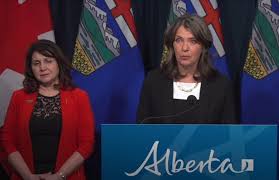Mentzelopoulos: AHS, Government defence and plaintiff’s reply
Note: this post should be read in conjunction with "Smith, LaGrange, Alberta public service face grave test" which examined the Statement of Claim brought by the former President and CEO of Alberta Health Services, Athana Mentzelopoulos against AHS, Adriana LaGrange and the Government of Alberta. In addition a Chronology of Events provides a detailed timeline based on the statements filed at the Court of King's Bench. No allegations have been proven in Court.
The full Statement of Claim (SOC) is found below.
Government of Alberta (GOA), Adriana LaGrange Statement of Defence (filed 18 March)
The statement of defence (SOD) may be found below. Health Minister LaGrange and the Government of Alberta are represented by Bennett Jones LLP (Munaf Mohamed KC).
The GOA defence r...





